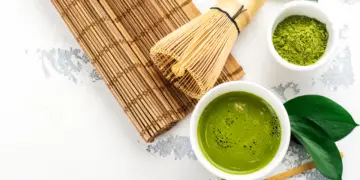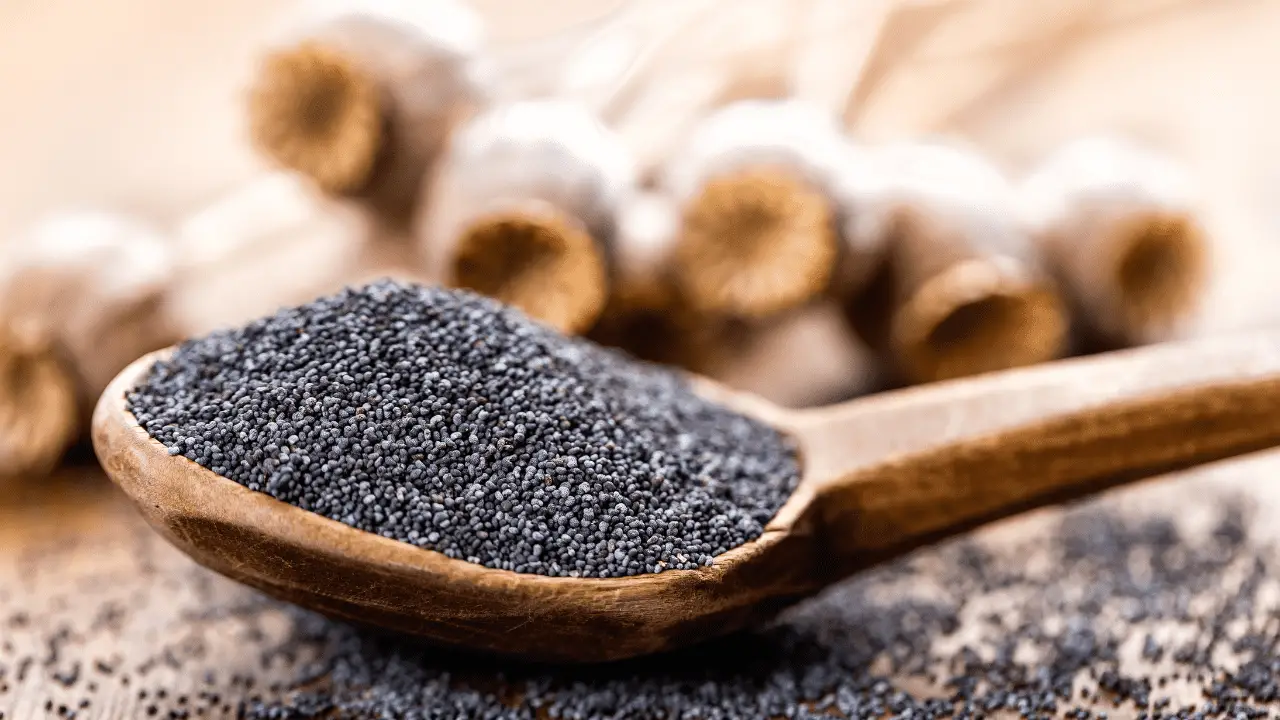Headache is quite a common phenomenon that everyone experiences. Some people suffer from it occasionally, while for others it’s a chronic issue. But either way, headaches can disrupt your life to a great deal, especially for chronic sufferers.
Medications are an option, but for chronic use, they might not be free of side effects. This is where some natural remedies come into play. Many different remedies can help, and one of such remedies is various herbal teas.
Depending upon what kind of headache you have, the degree to what extent a particular herbal tea can help will vary. For example, for a mild headache, they may be able to stop the pain, but that may not be the case in migraines. Migraine is a chronic and intense headache, and while these teas may not always completely stop your migraine episode, they will certainly help you through your acute migraine episode.
Following are some of the herbal teas you can try for your headache.
1. Willow Bark Tea
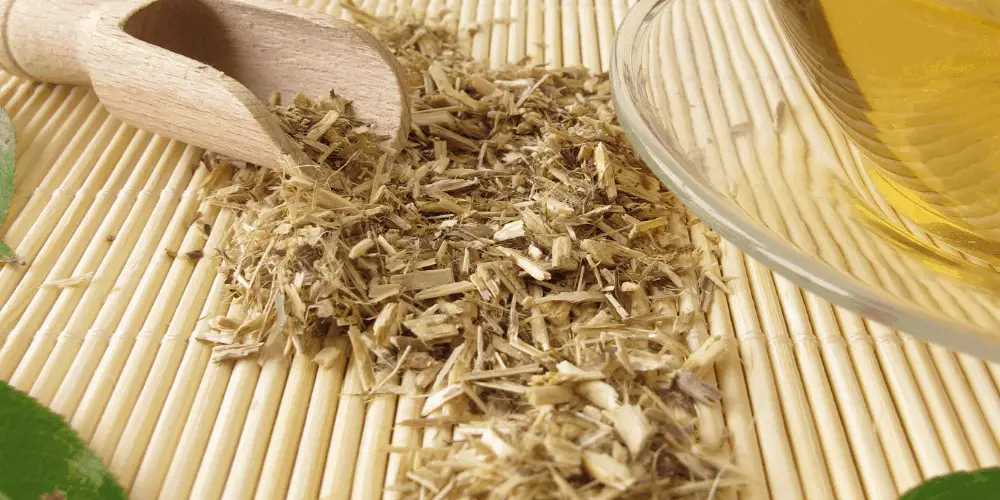
Willow bark is believed to be nature’s aspirin as salicin, a component of willow bark exhibits similar action as aspirin, including its analgesic effect.
In addition to the salicin, willow bark is also rich in antioxidants such as flavonoids and polyphenols which also can indirectly provide some analgesic activity as they are anti-inflammatory.
There is a lot of anecdotal evidence of willow bark tea being helpful in patients with osteoarthritis and rheumatoid arthritis, but this hasn’t been proven yet by science (more research with higher doses required). However, up to 240 mg of willow bark extract has been demonstrated to help relieve lower backache. So, if you suffer from both lower backache and headaches frequently (fibromyalgia, and other chronic issues), willow bark tea can offer some relief.
That said, do avoid willow bark tea if you are allergic to aspirin or if you are not allowed to use aspirin for any medical reasons. Also, avoid it if you are already on aspirin (for blood thinning, etc), as the combined effect may increase the overall effect. However, there are some studies that suggest that up to 240 mg of salicin per day will not affect blood thinning in healthy individuals with no comorbidities.
2.Lavender tea

Lavender tea is a very well-known tea with many amazing health benefits, It is a natural anxiolytic and sleeps inducer. It is also demonstrated to have anti-convulsant, anti-depressant, and analgesic effects. You can benefit from its analgesic effect if you have a headache and can see results either by drinking it as a tea or using it in aromatherapy,
Not to worry, as Lavender tea is It is not just for the occasional headaches as people with migraines can also benefit from it as well as it can provide some comfort by decreasing the intensity of pain and, therefore help get through migraine episodes.
In addition, this tea would be perfect for you if you also suffer from chronic stress and insomnia. What’s there not to love!
3. Ginger Tea

Ginger is yet another popular herb with many amazing health benefits. One of such many impressive benefits is its effectiveness against migraine headaches.
In a surprising study, it was found that ginger powder consumption is as effective as sumatriptan, an anti-migraine drug, in treating acute migraine episodes. The added advantage of ginger is that it has fewer (if any) side effects.
So, preparing ginger tea using ginger powder or adding the powder to your regular tea can be a low-risk solution to acute migraines.
4. Citron Tea
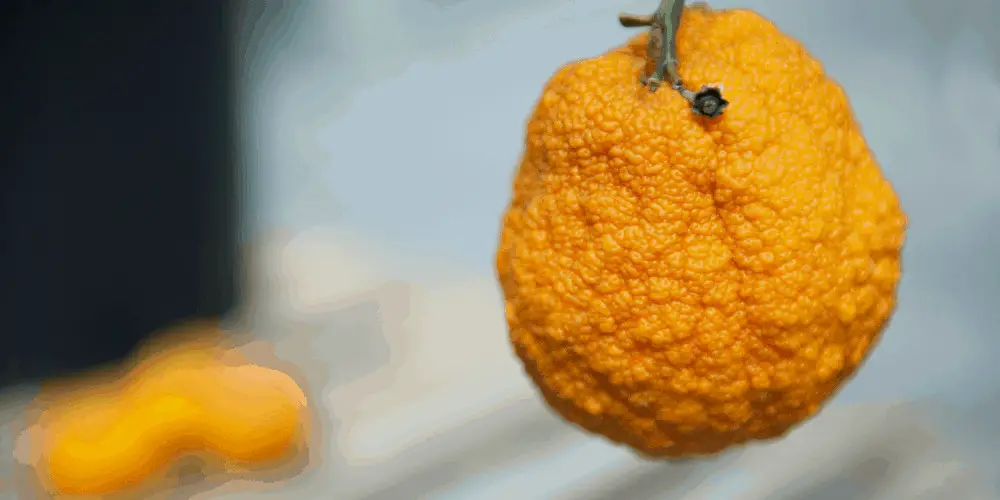
Also known as Korean citron tea, this tea can help reduce inflammation as it is a great source of vitamin C and a demonstrated natural analgesic.
Research has shown that citron tea can be good for treating migraines naturally as it helps reduce the intensity and duration of a migraine episode. In fact, a 2015 study published in the Journal of Ethnopharmacology concluded in their research that citron syrup is as effective as propranolol in preventing migraine headaches. Propranolol is a beta-blocker often prescribed in treating chronic migraines. It is worth mentioning that the study did not see any link between reducing this tea reducing the frequency of migraine episodes.
5. Feverfew Tea
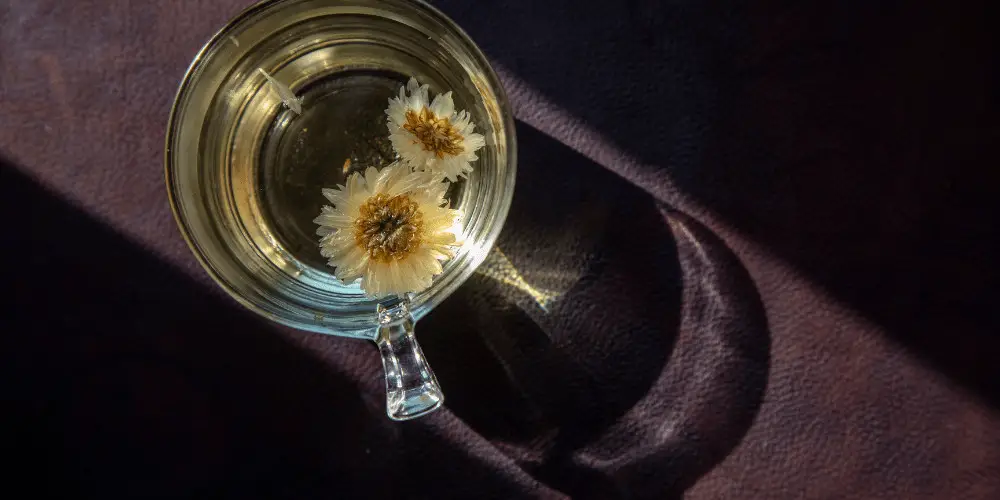
Feverfew tea, also known as chrysanthemum tea, is demonstrated to have analgesic effects as well. Historically it was used for treating fever, headaches, stomach ache, toothache, rheumatoid arthritis, etc.
This herbal tea also helps with nausea and therefore may help prevent or manage migraine-associated nausea. Also very rich in flavonoids, an antioxidant, it can exhibit an anti-migraine effect similar to methysergide maleate, an anti-migraine drug.
For some, it can help prevent impending migraine attacks and reduces migraine symptoms. That said, this is not the tea for you if you are pregnant or lactating.
6. Regular Tea

Interestingly enough, a good ol’ cup of any tea (Camellia sinensis): green tea, white tea, or black tea can be quite effective for headaches due to its caffeine content. Caffeine is a mild analgesic that can increase the potency of acetaminophen when taken with it.
Now, caffeine is a double-edged sword, as you may suffer from withdrawal headaches if you drink too much. In addition, caffeine in excess and sudden withdrawal of caffeine can trigger a migraine too. To prevent this, migraine patients are advised to not consume more than 200 mg of caffeine per day.
For some though, caffeine can be a common trigger for migraines. Know your body, if this is you, do avoid caffeine and try some of the non-caffeinated herbal teas in this list. Make sure that when you source these “tea” that they are a pure blend and not mixed with regular tea (Camellia sinensis), i.e. it should not contain any caffeine.
Other Teas With Anecdotal Evidence
- Peppermint tea
- Clove Tea
- Chamomile Tea
These are the tea that is often believed to help with pain relief as well. There may be a case to some, although they are no scientific studies backing them up. Nevertheless, Clove oil is very popularly used for toothaches. And both peppermint oil and Chamomile oil are often cited as helpful in relieving headaches when applied topically. But whether or not their tea varients relieve headaches is yet to be studied.
Other Remedies That Help With Headache
- Magnesium Supplement: this can help especially if you suffer from chronic migraines. It has been found that up to 50% of migraine patients have a magnesium deficiency in their system. Magnesium supplements for 4-6 weeks may be able to help in reducing the frequency, and duration of migraine episodes.
- Peppermint Oil: the topical application of peppermint oil can be great for people with tension headaches. In this study, it was tested against acetaminophen (paracetamol) and the control group (nothing) and there was some positive correlation between the topical application of this oil is and the percieved reduction of tension headaches among participants in the group.
- Chamomile Oil: a natural pain reliever, topical application of chamomile oil is proven to help with migraine. It is also a great stress-reliever.
Conclusion
There are many different types of headaches. Tension headache, cluster headaches, migraine, or headaches caused as a side effect from other ailments. Some are of milder intensity, while other types can make life really difficult. It is important to know what causes your headaches, especially if they are chronic.
Chronic headaches along with chronic pain in other parts of the body can be a sign of fibromyalgia and other chronic diseases. Please see your doctor for a proper diagnosis.
If you have a migraine, it’s important to know what your triggers are. Preventing them would be the best thing you can do to manage your migraine rather than relying on any homeopathic or prescribed medication.
Teas for headaches can be soothing but are just one leg in a self-care regime. In general, aim to drink plenty of water, take timely meals to prevent dehydration and hypoglycemia-associated headaches.
Also, note that spasm in neck muscles can also induce a headache. Having a good stress-relieving routine should help calm your mind and prevent unnecessary tensing of the muscles. If all fails and managing your headaches is not possible on your own, visit your doctor for additional guidance.


